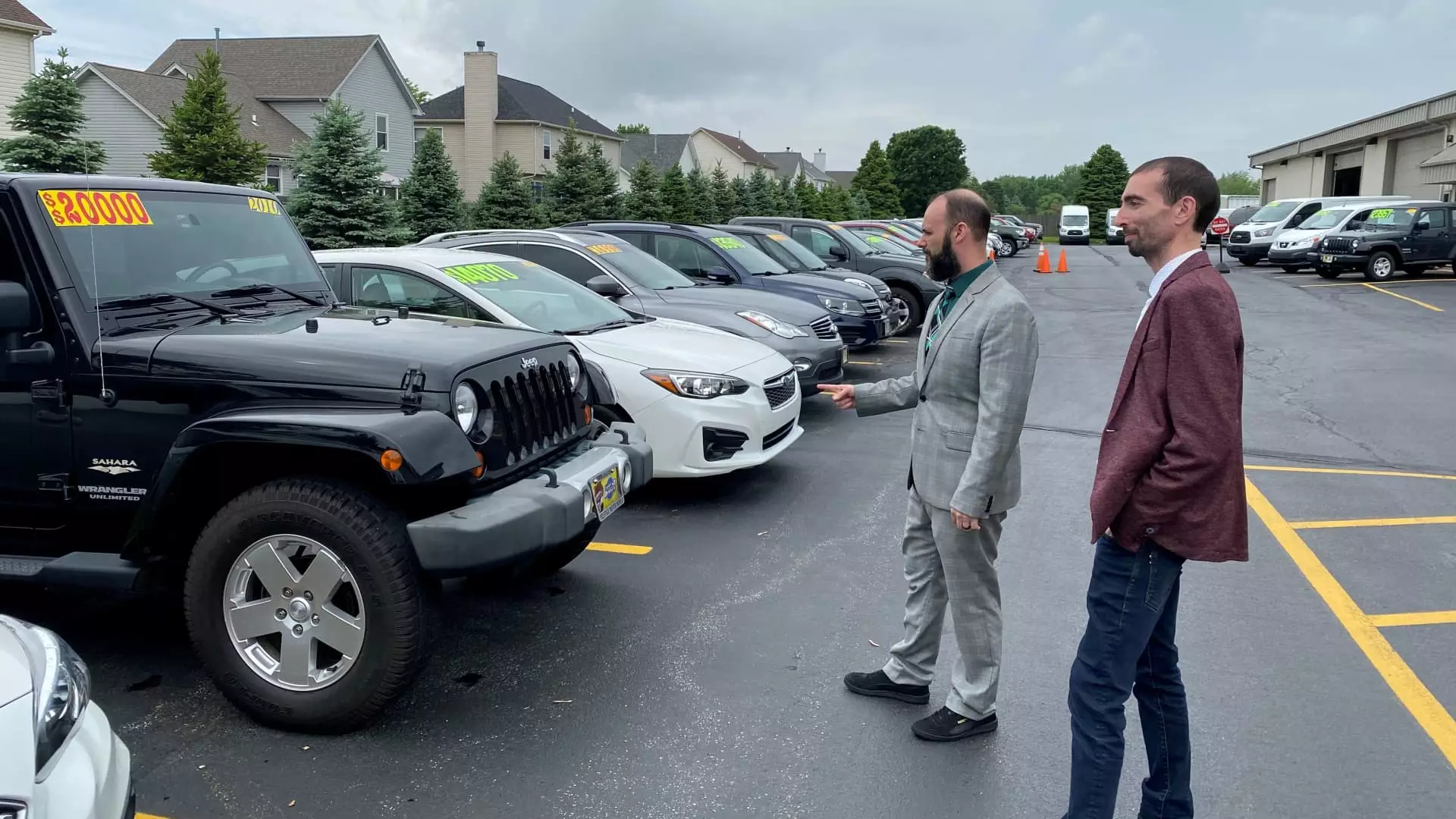As we approach the year 2025, the landscape for U.S. car dealerships is shifting, with heightened optimism permeating the sector. Recent surveys conducted by Cox Automotive reflect a noticeable increase in dealer confidence, primarily attributed to changing political dynamics and economic variables such as interest rates and promotional sales incentives from automakers. However, amidst this optimism, a cloud looms over the future of electric vehicle (EV) sales, as many dealers express skepticism regarding their viability under potential policy shifts following the election of President-elect Donald Trump.
The transition back to a Trump presidency introduces a variety of uncertainties, particularly surrounding the future of EVs. The sentiment among dealers, as articulated in the Q4 2024 Dealer Sentiment Index, reveals a pervasive worry that the forthcoming administration may alter crucial federal incentives that currently bolster the EV market. Policymakers may contemplate reducing or eliminating subsidies such as the consumer tax credit, which allows for savings of up to $7,500 when purchasing an electric vehicle. This consideration is a major source of anxiety for dealers who depend heavily on such incentives to drive sales.
Cox Automotive’s Chief Economist, Jonathan Smoke, highlighted the importance of these credits in supporting both new and pre-owned EV markets, suggesting that their potential removal could drastically change sales trajectories. Without these financial incentives, dealer forecasts for EV sales appear increasingly pessimistic, with many predicting declines in the immediate future.
Despite the ups and downs in the EV market, the outlook for traditional automobile sales shows promising signs, as evidenced by Cox’s market outlook index, which has significantly risen to 54. This increase is reflective of a growing belief among dealers that the automotive market will flourish in the upcoming quarter. With much of the pessimism seen last year dissipating (the index was as low as 41), it seems that the recent political clarity and economic indicators are concluding a chapter of uncertainty.
The phrase “more dealers are optimistic” resonates throughout the latest report, indicating that political resolution and favorable economic conditions are instilling a renewed vigor. Dealers are interested in capitalizing on rising demand that is not only driven by consumer needs but also facilitated by the supportive measures that may emerge under the new administration, including potential tax rebates and manageable interest rates.
The present moment is also characterized by elevated vehicle prices, which have benefited publicly traded automotive dealership stocks throughout this year. Companies like AutoNation, Lithia Motors, and Sonic Automotive have registered stock increases ranging from 15% to 22%, with Group 1 Automotive leading the pack with an impressive 40% rise. This robust performance underscores a fundamental preference for purchasing vehicles, further enriching dealer confidence levels.
However, it’s essential to recognize that many dealers remain circumspect. For example, even though the market outlook index is showing stronger numbers, it still signifies that a considerable number of dealers perceive the current environment as weak when compared to historical norms. The score of 42, albeit an improvement from previous assessments, remains below pre-pandemic standards, indicating lingering fragility in the automotive retail space.
While there is a palpable sense of optimism among U.S. car dealers heading into 2025, the path ahead is laden with challenges, particularly concerning the future of electric vehicles. The new administration’s policies could significantly influence consumer behavior and dealership sales strategies. As dealers navigate these uncertain waters, their adaptability and response to shifting political and economic landscapes will determine their success in an ever-evolving market. The road ahead may hold potential for growth and stability, but it will require vigilant navigation and foresight to capitalize on emerging opportunities.

Leave a Reply